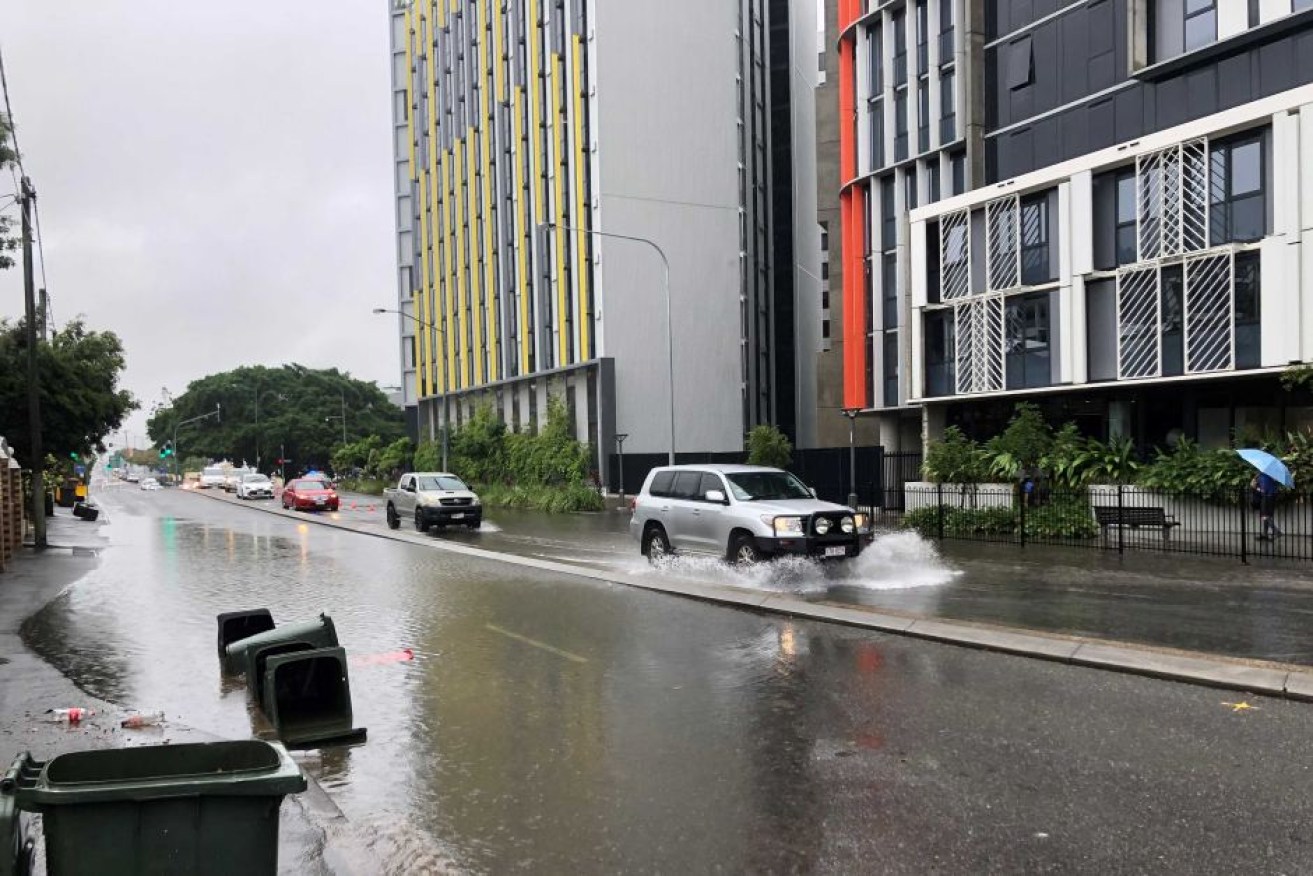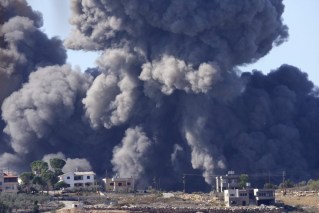Swamped: How Brisbane floods flowed to electoral upsets across city
As the rain continued to fall on polling day in Brisbane, the city’s recent flood trauma was a clear vote shifter, according to the Climate Council.


The deluge caused flash flooding in South Brisbane. (Photo: ABC News: Craig Andrews)
The council has released figures analysing the key seats in Saturday’s election that were affected by disasters during the last term of government.
Focusing on the 2019 Black Summer fires and this year’s flooding across Queensland and NSW, Climate Council researchers have determined that extreme weather directly influenced swings to pro-climate candidates.
Most of the political casualties were in the Coalition column, but Labor suffered, too, with the seat of Griffith, once held by former prime minister Kevin Rudd, falling to the Greens.
Climate Council CEO Amanda McKenzie said the most pronounced swings were away from the Coalition towards candidates with stronger climate platforms across the majority of seats in the Northern Rivers and South East Queensland affected by the 2022 flooding disaster.
“It’s a similar story in those seats where communities suffered during Black Summer,” she said.
“We’re seeing a very compelling story around how worsening climate disasters and climate risk has influenced big swings to the pro-climate independents, Greens and other candidates strong on climate policy.
“Millions of Australians have profoundly felt the impacts of climate change over this last term of government.”
The Brisbane seats of Griffith, Ryan and Brisbane share in common a large proportion of properties at risk of flooding and all saw double-digit swings away from the LNP.
Griffith and Ryan, seized from the LNP have fallen to the Greens, while the Greens candidate in the seat of Brisbane remained just ahead of Liberal incumbent Trevor Evans on Labor preferences.
In the seat of Lilley in Brisbane’s northern suburbs, where almost three per cent of properties are at risk of flooding, the swing away from the LNP was 12.4 per cent, helping the ALP incumbent Anika Wells to retain the seat.
The previously marginal seat of Moreton, which includes the Rocklea Markets where major flooding in February, saw an 8.9 per cent swing away from the LNP, making it a comfortable victory for ALP incumbent Graeme Perrett.
Professor Hilary Bambrick, director at the National Centre for Epidemiology and Population Health at the Australian National University said the last several months highlighted to Queenslanders just how vulnerable they were to climate change.
“Around 20,000 homes were inundated in the February-March floods and many people are still living in temporary housing,” Bambrick said.
“Much of the damage is yet to be repaired. This super-charged extended La Nina means it is still raining, even as the votes are being counted, in a season that is usually dry.
“For so many of us who have lived through this, it’s clear that being on the receiving end of worsening climate change influenced the vote of Queenslanders who want to see real action on climate that will make a difference.”








